
Do you have what you need to make your garden grow?


Garden Center
Store Hours
Mon-Sat:
6:00am - 10:00pm
Sun:
8:00am - 8:00pm
Curbside:
09:00am - 6:00pm
Location
Popular at Your Garden Center
Summer Popular Garden Supplies and More
Explore June Live Plants
Garden Project Calculators
;Resize=(703,395.44))
Grass Seed Calculator
When you're ready to seed your lawn, our calculator helps you estimate the amount of grass seed you'll need to get the job done.
;Resize=(703,395.44))
Mulch Calculator
Enter your preferred material, the square footage and mulch depth of the coverage space for accurate results.
;Resize=(703,395.44))
Fencing Calculator
We'll calculate the amount of fencing you should purchase based on your property needs.
Shop Outdoor and Garden Brands
Frequently Asked Questions About Gardening
What planting zone am I in?
Check the USDA plant hardiness zone map, as planting zones have shifted over the years. Planting zones with higher numbers can plant earlier in the year. Choose plants that are meant for your zone and increase your odds of successful gardening.
What's direct sow in gardening?
If the soil isn't frozen or cold, consider planting your flower, fruit, or vegetable seeds directly into your garden. This is called the "direct sow" method. Plant after the threat of frost is gone for the season, as sprouts and seedlings can't weather those conditions. You can also start your seeds indoors if you'd like. Consult your seed packet for how and when to sow seeds.
Do you carry organic seeds and plants?
Yes, we've got a variety of organic options, including organic veggie seeds and fruit seeds, as well as organic herb and flower seeds that are subject to availability. We also carry the organic fertilizer to feed your plants and the organic soil to plant them in.
Should I harden off my seedlings before planting them outside?
Yes, for best results, if you raised plants indoors from seeds in your own plant nursery, harden them before you transplant them. Hardening allows your seedlings to adjust to the great outdoors and rain, sun, and temperature swings, making them more resilient against cold snaps. It slows their growth until they're strong and ready to take off during a spring warm front.
What do I do before planting transplants or seeds outside?
Before you plant, make sure that the soil is healthy, your plant will have the right amount of sun, and it's warm enough outside. Check your seed packet to see if it likes shade, partial sun, or full sun, as well as what time of year it should be planted. Space your plants as described on the seed packet for best results so your plant babies have room to grow big and strong.
Should I use peat moss starters or coir starters?
Seed starters, full of nutrients in convenient pots or pellets, work for new and experienced gardeners. You don't have to use these starters if you're planting in soil, but you may want to. Starting seeds in peat pots works best for delicately rooted plants like cucumbers and eggplant, as well as flowers that require an acidic pH. Some people prefer coir starters instead, as they have a neutral pH. Check what type of soil your plants need to help narrow it down, and chat with a garden center associate if you need more info.
Garden Project Ideas
The Home Depot Garden Center at Evansville
Celebrate Springtime Gardening
On beautiful spring days, tidy the yard before everything blooms in earnest. Lawn care is often a priority as well. Don't forget to clean the shed and sweep out the gazebo in preparation for spring, too. No matter what outdoor projects you choose to tackle and which plants you need, you'll find that The Home Depot Evansville Garden Center is your local plant nursery to help you enjoy your spring activities to the fullest.
Plant Hardiness Zones Explained
The first thing to know when planting spring flowers, veggies, and other seeds is your planting zone. Every location in the U.S. and its territories is sorted by climate. Find your zone on the USDA plant hardiness zone map and learn when to plant seeds.
For example, you could plant bell pepper seedlings outdoors in mid-March in Zone 10, but not until the end of May in Zone 4. For best results, choose plants in your zone number or less. In other words, a Zone 6 garden can support plants listed as Zones 1–6. You can plant seeds indoors roughly a month before you can plant them outside, known as direct sow. Always read your seed packet for details. If you start seeds a little later than recommended, it's not ideal, but it will even out as time passes.
Gardening in Your Growing Zone
The Midwest is mostly Zones 6 and 7 throughout Indiana, Michigan, and Kentucky. You’ll find pockets of Zone 5 and stretches of Zone 4 in the Upper Peninsula. In Zones 5 and 6, the outdoor growing season doesn’t begin here until mid-March or even April, although you can plant some veggie seeds halfway through February. Warmer Zone 7 can start planting earlier, and Zone 4 much later on. Tomatoes, peppers, cucumbers, squash, and other classic garden crops will thrive in this region, and most of them can get an early jump on growing indoors before spring really moves in.
Also, check out certain herbs and cruciferous veggies if you're ready to get planting. This includes cabbage, broccoli, and kale. Greens like spinach, artichokes, and fragrant herbs, including basil, parsley, and oregano, also don't mind an early start. The main concern is waiting until the frost has passed for the season, so planting seeds outdoors as direct sow is later here compared to farther south.
Start Seeds Indoors
Save money when you grow your garden from seeds by starting them indoors in your own plant nursery. We've got all the seed starter supplies you'll need. Veteran planters and new gardeners alike should disinfect seed trays with a watered-down bleach solution before reusing them each year. When your trays or pots are prepared, plant your seeds. As for the soil, test the mineral levels and pH to find if it needs additives or amendments. Soil pH differs among regions, and what your plants need depends on what you're growing. Most veggie plants like a pH of 5.5–7.5. Soil amendments can tip the balance of your soil in a way that'll help your plants.
Measure your finger to use it as a ruler. In general, you'll plant 3–5 seeds, then press them into the soil to the depth you need with your finger. Mark where you planted the seeds with a toothpick or plant tag. That way, you'll know where your seeds should pop up. Otherwise, it'll be a surprise when the sprouts push out of the soil.
Sprouts
When your seeds have sprouted but aren't ready to go outside yet, you can still prepare them for outdoor life. These micro-seedlings are fragile — only an inch or so high, with the tiniest seedling leaf or two — but they're resilient. Seedlings don't get all this pampering in nature, so they can handle more than you think. However, don't go overboard, as your sprouts are still babies. You can even use an oscillating floor fan on low to mimic the wind and strengthen their stems.
Harden Your Seedlings
When you're hardening your sprouts and gradually introducing them to the outdoors, be flexible. Keep an eye on your baby plants. Bring them inside or move them to a shady spot if they're looking rough. As always, make sure they're watered enough. Whisk wilted plants inside and give them a good drink, making sure they're strong before setting them outdoors again.
Transplant Young Plants Into Their New Homes
When your plants have three or four real leaves — different from miniature seedling leaves — it's time to transplant them. In quality soil, dig a hole that's the same size as the dirt plug where your transplant has been growing. If your ground soil isn't great, dig a slightly bigger hole and fill the extra room with nutrient-rich topsoil. Apply any fertilizer as directed on the package, either in the hole or on top of the soil after it's planted. Only apply as much as recommended, as you could burn and kill the plant instead of helping it along.
Protect Your Garden With Mulch
Finish it all off with compost and mulch. Compost enriches the soil so your garden can grow even better. It may help foster larger and stronger plants that bear more fruit and flowers. Mulch controls weeds and keeps the soil moist. Mulch and compost can be purchased in-store or created at home. The next time you're looking for "mulch near me," stop by the Garden Center to get the right amount.
Greet the Spring
Don't miss a minute of growing season. Plan your garden and landscaping, prepare to fertilize your lawn, and browse The Home Depot nursery to find inspiration on what to plant when the weather warms. For those without lawns, consider adding an outdoor rug or artificial grass to your outdoor space. Shop for the soil, fertilizer, and seeds you need in the aisles of your Evansville Garden Center, online, or on our mobile app. Let's get growing together.
Nearby Stores
Find Another Store
5230 Pearl Dr
Evansville, IN 47712
9.20 mi
Mon-Sat: 6:00am - 9:00pm
Sun: 8:00am - 8:00pm
5150 Frederica St
Owensboro, KY 42301
26.05 mi
Mon-Sat: 6:00am - 9:00pm
Sun: 8:00am - 8:00pm
4250 Newton St
Jasper, IN 47546
42.47 mi
Mon-Sat: 6:00am - 9:00pm
Sun: 8:00am - 8:00pm
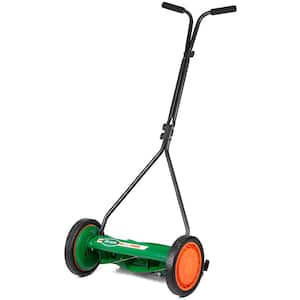
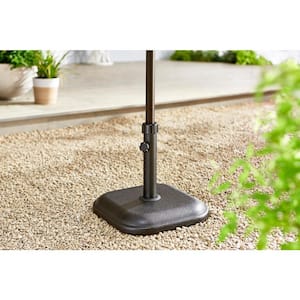
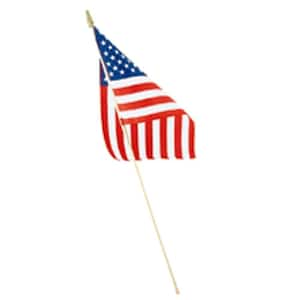
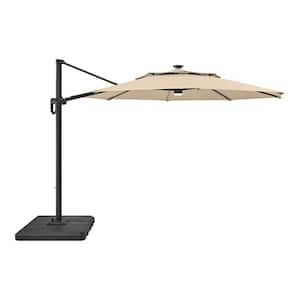
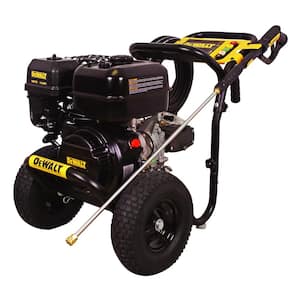
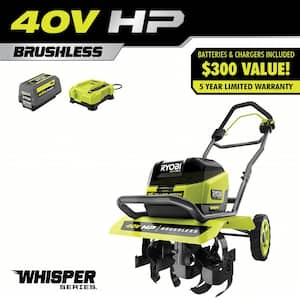
)
/17_514245_S_012_Product%20Image%20(square).jpg?im=Resize=(300,300))
)
)
)
;Resize=(300,300))
/2023_P2_Rain_Barrels_Product%20Image%20(square).jpg?im=Resize=(300,300))
)
)
)
)
;Resize=(300,300))
;Resize=(300,300))
;Resize=(300,300))
)
;Resize=(300,300))
;Resize=(300,300))
)
/12_SOIL_B_0420_Social%20media%20(square).jpg?im=Resize=(300,300))
;Resize=(300,300))
;Resize=(300,300))
;Resize=(300,300))
;Resize=(300,300))
)
;Resize=(300,300))
)
;Resize=(300,300))
;Resize=(300,300))
/18Patio_Camden_Seagrass_5pcSeating_Planters_302468736_DTL3_L_Social%20media%20(square).jpg?im=Resize=(300,300))
;Resize=(300,300))
;Resize=(300,300))
)
;Resize=(300,300))
;Resize=(300,300))
;Resize=(300,300))
;Resize=(300,300))
)
;Resize=(300,300))
)
)
.jpeg?im=Crop,rect=(363.69230769230774,1.2307692307692308,958.7692307692308,958.7692307692308);Resize=(300,300))
;Resize=(300,300))
;Resize=(300,300))
)
)
;Resize=(300,300))
)
)
;Resize=(300,300))
;Resize=(300,300))
)
;Resize=(300,300))
)
)
;Resize=(300,300))
;Resize=(300,300))
)
;Resize=(300,300))
/Capello_Spring_Mum_10in_Social%20media%20(square).jpg?im=Resize=(300,300))
;Resize=(300,300))
)
)
)
)
)
;Resize=(300,300))
)
)
;Resize=(300,300))
;Resize=(300,300))
;Resize=(300,300))
)
)
;Resize=(300,300))











































